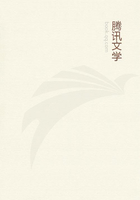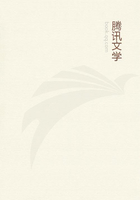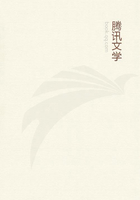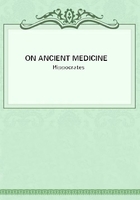Soc.The reverse of unimportant, my boys, as Philebus calls you, and there neither is nor ever will be a better than my own favourite way, which has nevertheless already often deserted me and left me helpless in the hour of need.
Pro.Tell us what that is.
Soc.One which may be easily pointed out, but is by no means easy of application; it is the parent of all the discoveries in the arts.
Pro.Tell us what it is.
Soc.A gift of heaven, which, as I conceive, the gods tossed among men by the hands of a new Prometheus, and therewith a blaze of light; and the ancients, who were our betters and nearer the gods than we are, handed down the tradition, that whatever things are said to be are composed of one and many, and have the finite, and infinite implanted in them: seeing, then, that such is the order of the world, we too ought in every enquiry to begin by laying down one idea of that which is the subject of enquiry; this unity we shall find in everything.Having found it, we may next proceed to look for two, if there be two, or, if not, then for three or some other number, subdividing each of these units, until at last the unity with which we began is seen not only to be one and many and infinite, but also a definite number; the infinite must not be suffered to approach the many until the entire number of the species intermediate between unity and infinity has been discovered-then, and not till then, we may, rest from division, and without further troubling ourselves about the endless individuals may allow them to drop into infinity.This, as Iwas saying, is the way of considering and learning and teaching one another, which the gods have handed down to us.But the wise men of our time are either too quick or too slow, in conceiving plurality in unity.Having no method, they make their one and many anyhow, and from unity pass at once to infinity; the intermediate steps never occur to them.And this, I repeat, is what makes the difference between the mere art of disputation and true dialectic.
Pro.I think that I partly understand you Socrates, but I should like to have a clearer notion of what you are saying.
Soc.I may illustrate my meaning by the letters of the alphabet, Protarchus, which you were made to learn as a child.
Pro.How do they afford an illustration?
Soc.The sound which passes through the lips whether of an individual or of all men is one and yet infinite.
Pro.Very true.
Soc.And yet not by knowing either that sound is one or that sound is infinite are we perfect in the art of speech, but the knowledge of the number and nature of sounds is what makes a man a grammarian.
Pro.Very true.
Soc.And the knowledge which makes a man a musician is of the same kind.
Pro.How so?
Soc.Sound is one in music as well as in grammar?
Pro.Certainly.
Soc.And there is a higher note and a lower note, and a note of equal pitch:-may we affirm so much?
Pro.Yes.
Soc.But you would not be a real musician if this was all that you knew; though if you did not know this you would know almost nothing of music.
Pro.Nothing.
Soc.But when you have learned what sounds are high and what low, and the number and nature of the intervals and their limits or proportions, and the systems compounded out of them, which our fathers discovered, and have handed down to us who are their descendants under the name of harmonies; and the affections corresponding to them in the movements of the human body, which when measured by numbers ought, as they say, to be called rhythms and measures; and they tell us that the same principle should be applied to every one and many;-when, I say, you have learned all this, then, my dear friend, you are perfect; and you may be said to understand any other subject, when you have a similar grasp of it.But the, infinity of kinds and the infinity of individuals which there is in each of them, when not classified, creates in every one of us a state of infinite ignorance; and he who never looks for number in anything, will not himself be looked for in the number of famous men.
Pro.I think that what Socrates is now saying is excellent, Philebus.
Phi.I think so too, but how do his words bear upon us and upon the argument?
Soc.Philebus is right in asking that question of us, Protarchus.
Pro.Indeed he is, and you must answer him.
Soc.I will; but you must let me make one little remark first about these matters; I was saying, that he who begins with any individual unity, should proceed from that, not to infinity, but to a definite number, and now I say conversely, that he who has to begin with infinity should not jump to unity, but he should look about for some number, representing a certain quantity, and thus out of all end in one.And now let us return for an illustration of our principle to the case of letters.
Pro.What do you mean?
Soc.Some god or divine man, who in the Egyptian legend is said to have been Theuth, observing that the human voice was infinite, first distinguished in this infinity a certain number of vowels, and then other letters which had sound, but were not pure vowels (i.e., the semivowels); these too exist in a definite number; and lastly, he distinguished a third class of letters which we now call mutes, without voice and without sound, and divided these, and likewise the two other classes of vowels and semivowels, into the individual sounds, told the number of them, and gave to each and all of them the name of letters; and observing that none of us could learn any one of them and not learn them all, and in consideration of this common bond which in a manner united them, he assigned to them all a single art, and this he called the art of grammar or letters.
Phi.The illustration, Protarchus, has assisted me in understanding the original statement, but I still feel the defect of which I just now complained.
Soc.Are you going to ask, Philebus, what this has to do with the argument?
Phi.Yes, that is a question which Protarchus and I have been long asking.
Soc.Assuredly you have already arrived at the answer to the question which, as you say, you have been so long asking?
Phi.How so?

